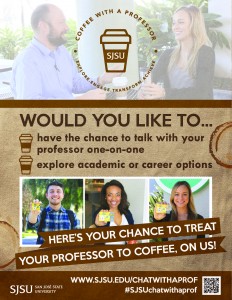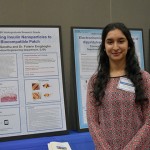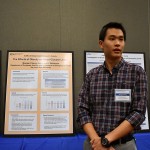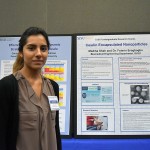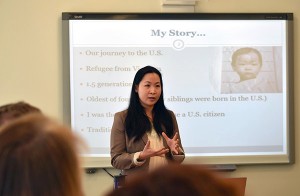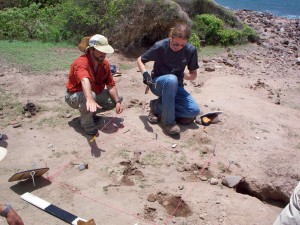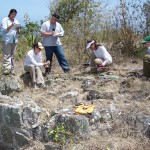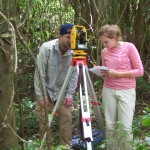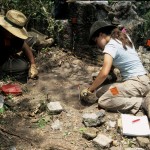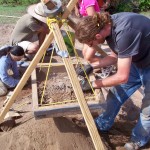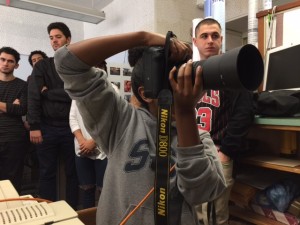
Photo courtesy of Michael Cheers
Beginning Digital News Photography (JOUR 95) student Raven Swayne gets hands-on practice shooting a portrait with studio lighting in University Photographer Bob Bain’s office/studio. The students also learned to use Adobe Lightroom.
More than 50 San Jose State staff and faculty members attended the Fourth Annual Adobe Day at the software developer’s downtown offices. The half-day session with the Adobe Education team offered a chance for SJSU staff and faculty to use digital tools in guided training sessions that they can replicate on campus.
After the presentation from Abobe’s team on March 4,Journalism and Mass Communication (JMC) Professor Michael Cheers introduced the new visual storytelling tool Slate to his students the following week.
“Students in both classes were uploading content to Slate in less than 10 minutes,” he said. “They embraced it. Both classes will submit their midterm using Slate.”
He will also be introducing another new tool, Muse, a responsive web design tool, after spring break.
Cheers said access to the latest software, including tools in Adobe’s Creative Suite such as Photoshop, Adobe Premier Pro and Lightroom, are integral to preparing his multimedia students for internship and entry-level positions involving photography and video.
“For the first time in JMC history, two multimedia/photojournalism students from SJSU are going to the New York Times Student Journalism Institute,” Cheers said, of James Tensuan and Randy Vazquez, who will participate in the program in summer 2016. “It’s an amazing accomplishment. They had to compete against thousands of college students from across the country.”
To help students learn the intricacies of the programs, Cheers hosts labs on weekends and before class, and also posts tutorials and visual storytelling examples on Canvas.
“My hope is that the students go beyond what is required for the assignment and a letter grade, and embrace innovation and creativity,” he said. “I love it when a student comes to class and shows the instructor what they learned independently.”
